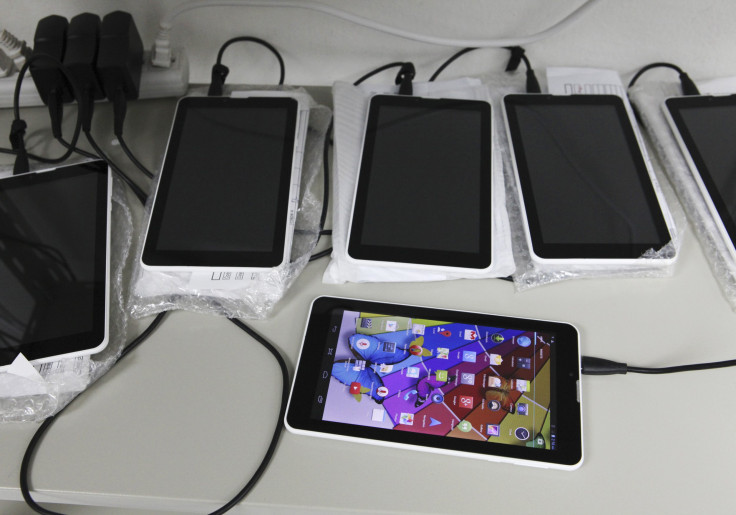Worldwide Tablet Shipment Growth Projected To Decline In 2014 As PCs Rebound

Tablets are unlikely to surpass personal computers in sheer numbers very soon, according to a new report from International Data Corporation, or IDC, which has halved its 2014 forecast for worldwide shipments to mature markets of tablets and "two-in-one" devices, which combine the features of a tablet and a laptop.
Global shipments of tablets are predicted to grow by only 6.5 percent in 2014 to 233.1 million units, well below the 12.1 percent growth rate previously forecast by IDC. The report also said that shipments in mature markets such as North America and Western Europe are expected to remain flat. But, in other markets around the world, tablet shipments are likely to grow by 12 percent in the same period.
“When we look at the global picture, it would be easy to say that the tablet market is slowing down,” Jean Philippe Bouchard, IDC research director for tablets, said in a statement. “But, when we start digging into the regional dynamics, we realize that there is still a good appetite for this product category.”
While the average selling price, or ASP, of tablets are expected to stabilize at $373 in mature markets in 2014, due to the shift to larger screens and cellular-enabled tablets, the ASP in the rest of the world will fall to $302, representing an annual decline of 10 percent, according to IDC.
“Driven primarily by small devices, we expect the rest of the world to account for the majority of shipments in the years to come,” Jitesh Ubrani, a senior research analyst at IDC, said in the statement. “But in terms of dollars spent, medium- to large-sized devices in North America and Western Europe will still produce significant revenues.”
Meanwhile, worldwide shipments of PCs are expected to fall only by 3.7 percent in 2014, instead of by 6 percent as predicted before, IDC reportedly said, adding that the growth in shipments of desktop and laptop computers to mature markets would more than offset a fall in demand in emerging markets, including Asia, Latin America and the Middle East.
“Programs to reduce PC prices, such as Windows 8.1 with Bing, have helped to improve PC shipments in some segments,” Agence France-Presse quoted Jay Chou, a senior IDC research analyst, as saying. “Nevertheless, the prospects for significant PC growth in the long term remain tenuous, as users increasingly see PCs as only one of several computing devices.”
© Copyright IBTimes 2024. All rights reserved.






















